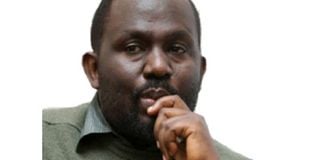DRC poll makes Uganda last Mobutuist state in EA

CHARLES ONYANGO-OBBO
What you need to know:
- Mirror. ... looking at the DRC from a Ugandan perspective, there are some uncomfortable factors it throws up. Perhaps in no other country in Africa is the contempt of the Congolese elite, particularly Mobutu Sese Seko’s repressive thiefdom, as intellectually refined as it is in Uganda.
At the weekend, neighbour Democratic Republic of Congo went to the polls.
It had all the hallmarks of a rigged vote that Ugandans have become very familiar with over the last nearly 40 years: Opposition candidates were harassed and locked out; the election commission was stuffed with regime supporters; the ruling People’s Party for Reconstruction (PPRD) candidate had state resources at his beck and call; voting materials were delayed, and several polling stations didn’t open at all.
Joseph Kabila also did something no other African autocrat has done. He weaponised a disease, in this case Ebola, to rig the vote, getting the election commission to postpone polls in most pro-opposition areas in the east like Beni, Butembo and Yumbi to March. It will be an exercise in futility, because a new president will have been installed in January. With that, Kabila eliminated nearly 1.3 million votes that might have gone against his chosen successor, Emmanuel Ramazani Shadary.
Though there is insecurity in eastern DRC and ebola, and they are sure cause for concern, they didn’t prevent protracted campaigning. The decision to postpone voting in these areas, therefore, seems to have been informed by the fact that opposition candidate Martin Fayulu of the Engagement for Citizenship and Development party, was far ahead of Kabila’s protégé Shadary in opinion polls.
Yet, looking at the DRC from a Ugandan perspective, there are some uncomfortable factors it throws up. Perhaps in no other country in Africa is the contempt of the Congolese elite, particularly Mobutu Sese Seko’s repressive thiefdom, as intellectually refined as it is in Uganda.
There are many reasons, including Mobutu’s support for murderous Ugandan rebels, but more so his backing for reactionary southern African dissident movements like Jonas Savimbi’s UNITA in Angola at a time when a freshly-minted NRM government was seen as the vanguard of the African revolution. In 1996-1997, along with Rwanda, Zimbabwe, Angola, Ethiopia, Uganda joined forces with Congolese rebels to oust Mobutu and install Kabila (Laurent), the father.
However, last week as DRC geared up for the election, in Uganda the government deployed massively yet again to block a Boxing Day concert by musician and Kyaddondo East MP Bobi Wine – because he is a critic of President Museveni. Weeks earlier, it had blocked and chased him out of Jinja where he had planned another show.
You see where this is leading – in the DRC, which Ugandans sneer upon with superior noses in the air, musicians who are critical of Kabila have more freedom than the ones that oppose Museveni.
And with its massively rigged vote, DRC could achieve something it hasn’t in its 56 years of independence – either transfer of power through an election or the long hand of the Grim Reaper, to another leader of the ruling party, or to the opposition.
All Uganda’s neighbours have now done so. South Sudan did it when John Garang was killed in the July 2005 helicopter crash, and Salva Kiir took over as SPLM chief. In Rwanda, an under-pressure Pasteur Bizimungu resigned in March 2000 and Paul Kagame, then vice president and defence minister, took over formally as president.
Kenya is the only East African country where an opposition candidate, Mwai Kibaki in December 2002, has defeated the ruling party’s man. And in 2013, though backed by Kibaki, Uhuru Kenyatta was not a member of his ruling alliance.
In Tanzania, since Julius Nyerere became the first leader in an East African country to step down in November 1985, CCM has clung to power but like clock work, has changed its leaders every 10 years.
Kabila, the son, took power in January 2001 after his father was assassinated. When – and we must add if here – he hands over power this month, he will have been in power for 17 years. In a recent BBC interview, Kabila indicated that he might seek to return to the Congolese throne in the future. And since Shadary is his puppet, unless he rebels against his master, Kabila might well be back. But he must be credited with the wisdom of appreciating that DRC need a commercial break from his rule.
On this January 2, 2019, Museveni will have been in power for 12,029 days. Mobutu is the only other leader in our region who had been in power as long as Museveni. Between November 24, 1965 and May 16, 1997, he was dictator for 11,496 days. Museveni has now been in power 533 days longer than him. If Kabila leaves, one effect of that is that Uganda will become a more Mobutuist state than DRC. There was a time when John Nagenda, in his New Vision column, liked to write about how a long life allowed the rat to eat the cat’s hide. This is it.
Mr Onyango-Obbo is the publisher of Africa data
visualiser Africapedia.com and explainer site. Roguechiefs.com. Twitter@cobbo3




